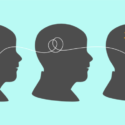
What effect are your words and actions having, and how can you tell?
Many people go through their daily lives, whether at work or home, talking to other people and not really knowing the impact or affect their words or actions are having on other people – yet the words and actions we use on a daily basis can greatly influence others around us.
How any times have you heard the phrase:’…what’s the matter with them?’, or ‘all I said was…?’
Or how about: ’I really don’t know what I did but they seem to be upset.’
If you take the time to study a person’s face, you can see that it betrays many emotions and feelings, and by looking for the signs, you could easily adapt your words and actions using the skills and techniques we’ve covered in previous articles to make a positive and lasting impression on others around us.
Try it for yourself and look out for the tell-tale signs that betray someone’s inner most feelings. Maybe it’s an imperceptible tightening around the eyes or mouth when you think you are trying to explain something patiently; a tautness of the skin; or perhaps even a colour change from dark to light, or vice versa.
Check out their body language, what is it telling you?
• Are their shoulders tight, head to one side uncomfortably?
• Are they shuffling their feet, perhaps crossing their legs?
• Is their body tilted away from you so that they can try to distance themselves?
• Do they feel comfortable around you or uncomfortable, and how can you tell, what are signs to look for?
• What’s their breathing like? Is it deep, shallow, quick or slow?
• Are their lips tightly drawn?
• Do they speak and act towards you in the way you would like them to, and if not, why that could be?
Many people react to the signal or message that you might be unconsciously sending out with your own body language. For example, if you were feeling a little tense or uptight or edgy, you will be conveying that feeling across to the other person who will in turn reflect that back to you, making you assume that they are ’hostile’, when in fact, the emotion or feeling is coming from you. Therefore, the first thing to do is to check yourself and your language patterns. Are you using the correct modality (we covered this in a previous article) to suit this person?
What kind of body language are you using? Are you too close to them, or too far away?
Take the time to see how they react with other people in the office or at home, and take particular note of their expressions and body language as they are giving you very important clues as to what makes them happy or unhappy.
Observe how they interact with individuals that they like and don’t like, and see if you can spot the differences in behavior. Are their words congruent with their actions – what are they really saying and feeling?
In life, we very often only notice when someone is upset when they start to cry, and we rely too much on people telling us verbally how they feel, instead of using our eyes and ears. We do not want to know if a person is angry with us by receiving a punch on the nose, and we certainly don’t want to mentally conjure up all sorts of possibilities from a twitch of the eyebrows.
If you want to be a truly effective communicator this is one lesson you can’t afford not to learn!












